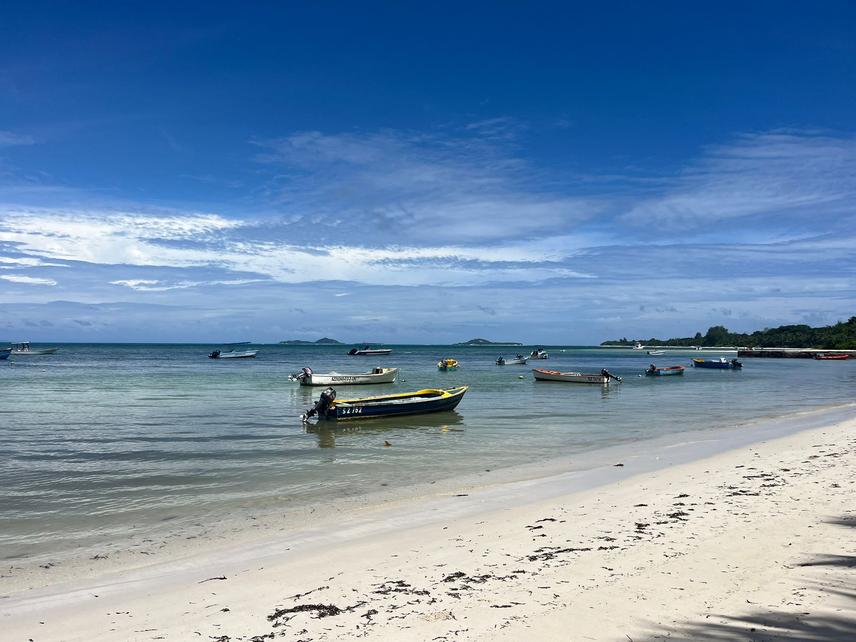Rachel Pool
At least 54 species of small cetaceans are consumed by humans in 86 countries worldwide. There is evidence that hunting of small cetaceans is increasing including the number of species consumed, especially in countries of the Global South. In these nations, increasing human populations and declines in fish stocks could lead to increasing pressure on other marine resources, particularly small cetaceans. Many of these countries are also remote and lack the capacity for research and monitoring of hunting practices. This leaves a large gap in our knowledge of the socioeconomic importance of small cetacean hunting in island communities, as well as the sustainability of these activities. The monitoring of small cetacean exploitation is critical, as unsustainable practices could affect population viability and threaten ecosystem stability.

Small local fishing boats at North-East Point, Mahé. ©Michelle Caputo, University of New England.
Small cetacean hunting is ongoing in six countries in the Western Indian Ocean yet catch rates and target species remain unknown for at least half of these nations. This is especially true in Seychelles, where limited documentation exists despite reports that dolphin hunting does occur. Previous but anecdotal reports suggest that several species of small cetaceans may be exploited in Seychelles, and as many as 200-300 bottlenose dolphins (Tursiops sp.) could be caught per year. Spinner dolphins (Stenella longirostris) have also been reported as a target species. Aside from the magnitude of dolphin hunting operations, knowledge is lacking on the location of hunting grounds and about species targeted. Additionally, we lack information on the number of hunters/hunting communities involved, as well as the history and the importance of this practice to local culture and livelihoods.
The purpose of the project is to conduct the first assessment of small cetacean exploitation off the main islands of Seychelles using interview surveys. Our goal is to better understand the socioeconomic importance of small cetacean exploitation in Seychelles and to provide baseline documentation to resource managers to inform marine policy and the design of future monitoring programs. Gathering of local or traditional knowledge from stakeholders is important in ecological research, especially in areas where monitoring and time-series data do not exist. Interview surveys with community stakeholders are common in fisheries research and have been applied to investigate cetacean hunting in many areas across the globe. This project will contribute to increase research and management efforts on cetaceans in Seychelles and promote the involvement of local researchers and students.
Header: Small local fishing boats at Baie St Anne, Praslin. ©Michelle Caputo, University of New England.